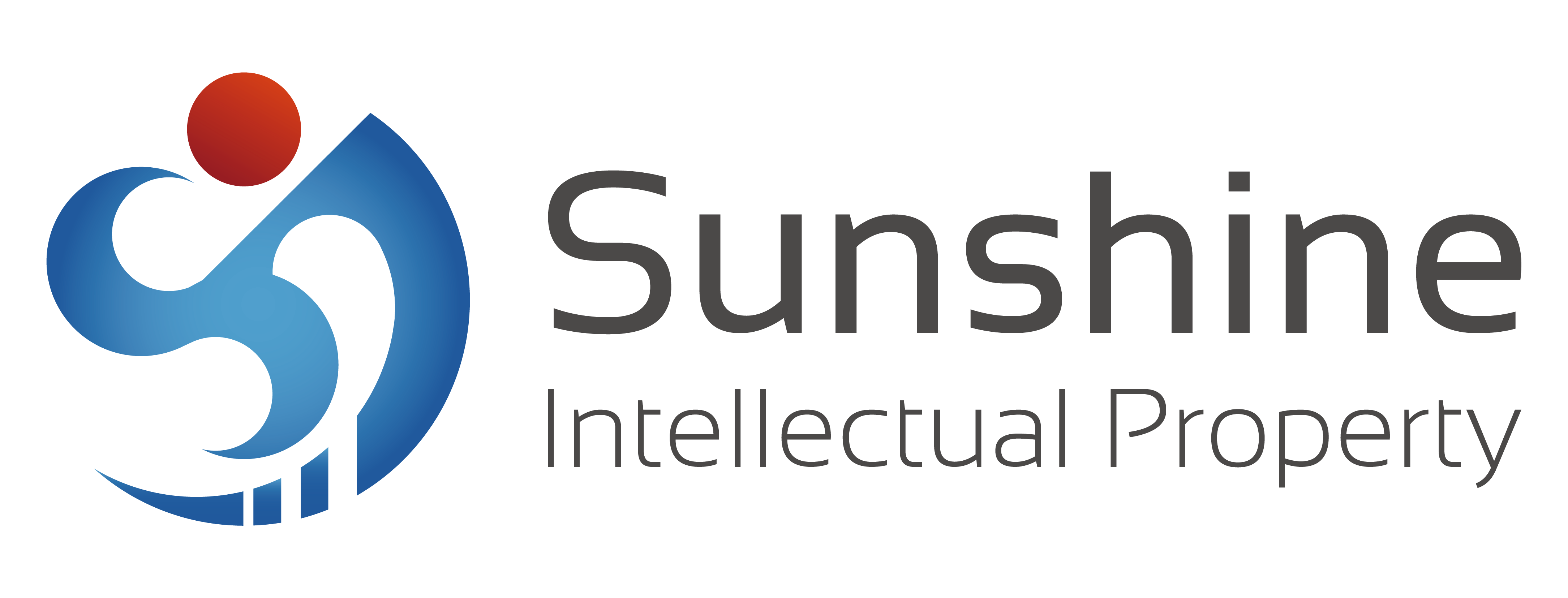In March 2017, a lawsuit against Mobike drew attention. Yinyun Technology, a manufacturer of access control systems, took the bike-sharing company Mobike to court and simultaneously requested administrative intervention, claiming that Mobike's smart locks infringed on several of their patents. At that time, the market competition between Mobike and other companies was at a fever pitch, and this unexpected "outsider" could very well put the brakes on Mobike's expansion.

Yin Yun Technology also announced publicly that they own the fundamental patent technology in the field of smart lock opening. Its agent lawyer also stated openly that the users of smart lock opening technology are increasing constantly. Yin Yun Technology will carry out a series of rights protection actions against the suspected patent infringement behaviors. From this perspective, Mobike is just the first target. What Yin Yun Technology wants to do is to make the entire shared bike industry "pay the toll".
Therefore, the outcome of the lawsuit filed by Yin Yun Technology against Mobike for infringement is not only about the gains and losses of Mobike alone, but also concerns the future and destiny of the entire bike-sharing industry.
The media also sensed the unusualness in the air, and related reports appeared one after another in the newspapers.
How does Mobike "unlock" in the face of patent disputes? Mobike's smart lock may become a "stumbling block". Is Mobike's unlocking technology suspected of infringement? Enterprises should not neglect the protection of patent rights in the course of development...
Some self-media outlets have even begun to predict the downfall of Mobike, saying that "a million Mobike bikes may end up as scrap metal."
In response to this, Mobike remained calm and restrained, publicly stating that they would resolve the matter reasonably through legal means. Subsequently, they approached Sanju Sunshine.
After multiple contacts with Mobike, in order to resolve the dispute as soon as possible and minimize the impact of the lawsuit on Mobike, Sanju Sunlight decided to resolve the case through a patent invalidation declaration. If the patent of Yunchun Technology is declared invalid, the accusation of Mobike's infringement will no longer hold, and the infringement risks for other shared bike enterprises will also cease to exist.
After receiving the invalidation declaration application submitted by Sanju Sunshine, the Patent Reexamination Board of the National Intellectual Property Administration (hereinafter referred to as the "Reexamination Board") took into account that the lawsuit filed by Yin Yun Technology against Mobike had already attracted considerable public attention. Moreover, the patent invalidation application procedure initiated by Mobike against Yin Yun Technology would directly determine the course of the case. Therefore, the Reexamination Board decided to hold a public hearing for this case. Among the five cases that were previously heard in public, some had litigation claims as high as 100 million yuan.
In September 2017, the case was publicly tried. Many industry insiders and media reporters attended the trial as observers, and the trial was live-streamed on China Court Network. In December of the same year, the Reexamination Board declared the patent right of Yinyun Technology with the patent number 201310630670.7 and the name "Internet Access Control Temporary User Authorization Device and Method" completely invalid. This patent was the core patent that Yinyun Technology accused Mobike of infringing. With the invalidation of this patent, Yinyun Technology's lawsuit lost its factual basis, officially declaring the failure of its series of rights protection actions and giving other shared bicycle enterprises a sense of security. This case was selected as one of the "Top Ten Typical Cases of Patent Administrative Protection in Beijing in 2017" that year.
During the public hearing of the invalidation procedure, there are two points worth mentioning for Sanju Sunshine:
A thorough understanding and application of the applicable circumstances for foreign evidence that does not require notarization or certification.
During the trial, Sanju Sunshine submitted a piece of extraterritorial evidence (evidence formed outside the territory of China) to the Reexamination Board. Generally speaking, extraterritorial evidence needs to go through certification procedures to prove its authenticity. However, foreign patent documents obtained from foreign patent offices, evidence for which the authenticity can be sufficiently proved by other evidence, and evidence recognized as authentic by the opposing party do not require certification procedures.
In this case, the extraterritorial evidence submitted by Sanju Sunshine was a foreign publication, not a document from a foreign patent office. Considering that Yinyun Technology was unlikely to recognize its authenticity, Sanju Sunshine needed to find a way to prove its authenticity. Therefore, Sanju Sunshine provided a literature reproduction certificate issued by the Science and Technology Information Center of the National Library and stamped with the red seal and the seam seal of the "Science and Technology Information Center of the National Library", which was recognized by the Reexamination Board. The Reexamination Board held that "the Science and Technology Information Center of the National Library is a recognized novelty search institution by the Ministry of Science and Technology of the People's Republic of China and a dedicated institution for scientific and technological literature consultation of the National Library, and the literature reproduction certificate it issues is true and reliable."
2. A Full Understanding and Application of the "No-Regret" Principle
Article 6 of the Interpretation of the Supreme People's Court on Several Issues Concerning the Application of Law in the Trial of Patent Infringement Dispute Cases, which came into effect on January 1, 2010, stipulates the principle of "prohibition of estoppel": Where a patent applicant or patentee, through the modification of the claims or the statement of opinions in the patent authorization or invalidation declaration procedure, has abandoned a technical solution, and the patentee subsequently includes such technical solution within the scope of protection of the patent in a patent infringement dispute case, the people's court shall not support it.
In short, one cannot go back on their word. Any claim that has been abandoned cannot be reinstated just because one wants to win the case later. During the invalidation proceedings, Yin Yun Technology clearly stated that the "user" and "temporary user" in the above patent claims were not the same person. Therefore, based on the "prohibition of estoppel" principle, Yin Yun Technology can no longer assert in the administrative handling procedure that the "user" and "temporary user" are the same person. The infringement must not hold. As a result, Yin Yun Technology withdrew its request for administrative handling against Mobike Company one day before the oral hearing of the administrative handling procedure.
So, why is this case from four years ago still worth paying attention to today? Because the story of Mobike and Yin Yun Technology is still being repeated today. The conflict between industrial innovation and patent protection is an enduring topic. In view of this, experts from Sanju Sunshine Intellectual Property have given four suggestions:
Enterprises need more professional intellectual property due diligence.
In today's innovation field, it is very common for technologies and products to cross boundaries. As a result, enterprises are highly likely to face patent infringement risks across different fields. Therefore, enterprises need more professional due diligence to avoid infringement risks in multiple fields. If they launch products to the market without adequate preparation, it is almost like stepping into a minefield, just like Tang Seng's journey to the West, "difficulties everywhere and disasters at every step". If they only pay attention when litigation disputes occur, they will often be in a passive position. If Mobike had not won the above-mentioned dispute, it would either have to pay a large amount of compensation or replace the locks of the 1 million bikes that had already been launched to the market. Entering into such a patent dispute during the critical period of market expansion would result in incalculable losses.
2. Enterprises should make intellectual property reserves.
Enterprises should not only conduct intellectual property due diligence but also build up their intellectual property reserves. While protecting their core technologies from infringement, they can also reduce risks and increase profits by engaging in patent cross-licensing with others. This also indirectly avoids the situation where they miss development opportunities during the critical period of enterprise expansion due to intellectual property litigation.
3. Enterprises should prepare alternative plans.
When enterprises are developing products, they should consider alternative solutions. In case some components of the product encounter problems, they can be replaced and modified immediately. This way, the other party's patent lawsuit will lose its basis quickly, minimizing the impact of the lawsuit on themselves as much as possible.
4. Patent infringement accusations don't have to be a fight to the death.
In the case where Yin Yun Technology sued Mobike for infringement, Yin Yun Technology directly filed a lawsuit against Mobike without prior contact, thus giving up the opportunity for negotiation at the first place. This approach was not very wise. The purpose of patent infringement accusations is not necessarily to put the other party out of business. Besides seeking compensation, it can also be used as a bargaining chip in negotiations to promote future licensing cooperation between the two sides and achieve a win-win situation.
When handling the series of patent infringement lawsuits on behalf of Dongwei Company, Sanju Sunshine flexibly adopted a combination of litigation and settlement licensing as its rights protection strategies. This not only punished the companies that infringed maliciously but also reached cooperation agreements with many companies that did not infringe intentionally. While establishing its credibility, it also made many friends. After the series of cases were concluded, the market share and reputation of the rights holder's products were significantly enhanced.

